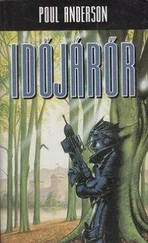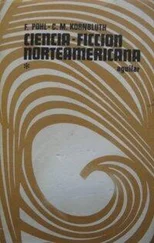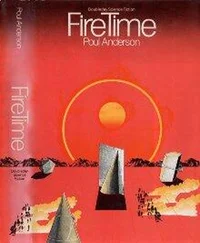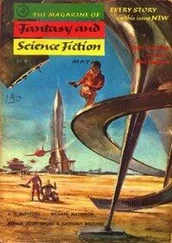Poul Anderson - Guardians of Time
Здесь есть возможность читать онлайн «Poul Anderson - Guardians of Time» весь текст электронной книги совершенно бесплатно (целиком полную версию без сокращений). В некоторых случаях можно слушать аудио, скачать через торрент в формате fb2 и присутствует краткое содержание. Год выпуска: 1962, Издательство: Ballantine, Жанр: Альтернативная история, на английском языке. Описание произведения, (предисловие) а так же отзывы посетителей доступны на портале библиотеки ЛибКат.
- Название:Guardians of Time
- Автор:
- Издательство:Ballantine
- Жанр:
- Год:1962
- ISBN:нет данных
- Рейтинг книги:3 / 5. Голосов: 1
-
Избранное:Добавить в избранное
- Отзывы:
-
Ваша оценка:
- 60
- 1
- 2
- 3
- 4
- 5
Guardians of Time: краткое содержание, описание и аннотация
Предлагаем к чтению аннотацию, описание, краткое содержание или предисловие (зависит от того, что написал сам автор книги «Guardians of Time»). Если вы не нашли необходимую информацию о книге — напишите в комментариях, мы постараемся отыскать её.
“Delenda est” Dec 1955;
“Brave To Be A King” Aug 1959;
“The Only Game in Town” Jan 1960;
“Gibraltar Falls” Oct 1975.
Guardians of Time
Guardians of Time — читать онлайн бесплатно полную книгу (весь текст) целиком
Ниже представлен текст книги, разбитый по страницам. Система сохранения места последней прочитанной страницы, позволяет с удобством читать онлайн бесплатно книгу «Guardians of Time», без необходимости каждый раз заново искать на чём Вы остановились. Поставьте закладку, и сможете в любой момент перейти на страницу, на которой закончили чтение.
Интервал:
Закладка:
Ah-hah! Somehow, Everard did not feel happy at his success.
The Second Punic War (they called it the Roman War here—or, rather, some crucial incident thereof—was the turning point. But partly out of curiosity, partly because he feared to tip his hand, Everard did not at once try to identify the deviation. He’d first have to get straight in his mind what had actually happened, anyway. (No… what had not happened. The reality was here, warm and breathing beside him; he was the ghost.)
“So what came next?” he asked tonelessly.
“The Carthaginian empire came to include Hispania, southern Gaul, and the toe of Italy,” she said. “The rest of Italy was impotent and chaotic, after the Roman confederacy had been broken up. But the Carthaginian government was too venal to remain strong. Hannibal himself was assassinated by men who thought his honesty stood in their way. Meanwhile, Syria and Parthia fought for the eastern Mediterranean, with Parthia winning and thus coming under still greater Hellenic influence than before.
“About a hundred years after the Roman Wars, some Germanic tribes overran Italy.” (That would be the Cimbri, with their allies the Teutones and Ambrones, whom Marius had stopped in Everard’s world.) “Their destructive path through Gaul had set the Celts moving too, eventually into Hispania and North Africa as Carthage declined. And from Carthage the Gauls learned much.
“A long period of wars followed, during which Parthia waned and the Celtic states grew. The Huns broke the Germans in middle Europe, but were in turn defeated by Parthia; so the Gauls moved in and the only Germans left were in Italy and Hyperborea.” (That must be the Scandinavian peninsula.) “As ships improved, trade grew up with the Far East, both from Arabia and directly around Africa.” (In Everard’s history, Julius Caesar had been astonished to find the Veneti building better vessels than any in the Mediterranean.) “The Celtanians discovered southern Afallon, which they thought was an island—hence the ’Ynys’—but they were thrown out by the Mayans. The Brittle colonies further north did survive, though, and eventually won their independence.
“Meanwhile Littorn was growing apace. It swallowed up most of Europe for a while. The western end of the continent only regained its freedom as part of the peace settlement after the Hundred Years’ War I’ve told you about. The Asian countries have shaken off their exhausted European masters and modernized themselves, while the Western nations have declined in their turn.” Deirdre looked up from the book, which she had been skimming as she talked. “But this is only the barest outline, Manslach. Shall I go on?”
Everard shook his head. “No, thanks.” After a moment: “You are very honest about the situation of your own country.”
Deirdre said roughly, “Most of us won’t admit it, but I think it best to look truth in the eyes.”
With a surge of eagerness: “But tell me of your own world. This is a marvel past belief.”
Everard sighed, switched off his conscience, and began lying.
The raid took place that afternoon.
Van Sarawak had recovered his poise and was busily learning the Afallonian language from Deirdre.They walked through the garden hand in hand, stopping to name objects and act out verbs. Everard followed, wondering vaguely if he was a third wheel or not, most of him bent to the problem of how to get at the scooter.
Bright sunlight spilled from a pale cloudless sky. A maple was a shout of scarlet, a drift of yellow leaves scudded across the grass. An elderly slave was raking the yard in a leisurely fashion, a young-looking guard of Indian race lounged with his rifle slung on one shoulder, a pair of wolf-hounds dozed under a hedge. It was a peaceful scene; hard to believe that men prepared murder beyond these walls.
But man was man, in any history. This culture might not have the ruthless will and sophisticated cruelty of Western civilization; in fact, in some ways it looked strangely innocent. Still, that wasn’t for lack of trying. And in this world, a genuine science might never emerge, man might endlessly repeat the cycle of war, empire, collapse, and war. In Everard’s future, the race had finally broken out of it.
For what? He could not honestly say that this continuum was worse or better than his own. It was different, that was all. And didn’t these people have as much right to their existence as—as his own, who were damned to nullity if he failed?
He knotted his fists. The issue was too big. No man should have to decide something like this.
At the showdown, he knew, no abstract sense of duty would compel him, but the little things and the little folk he remembered.
They rounded the house and Deirdre pointed to the sea. “ Awarlann,” she said. Her loose hair burned in the wind.
“Now does that mean ’ocean’ or ’Atlantic’ or ’water’?” laughed Van Sarawak. “Let’s go see.” He led her toward the beach.
Everard trailed. A kind of steam launch, long and fast, was skipping over the waves, a mile or two offshore. Gulls trailed it in a snowstorm of wings. He thought that if he’d been in charge, a Navy ship would have been on picket out there.
Did he even have to decide anything? There were other Patrolmen in the pre-Roman past. They’d return to their respective eras and…
Everard stiffened. A chill ran down his back and congealed in his belly.
They’d return, and see what had happened, and try to correct the trouble. If any of them succeeded, this world would blink out of space-time, and he would go with it.
Deirdre paused. Everard, standing in a sweat, hardly noticed what she was staring at, till she cried out and pointed. Then he joined her and squinted across the sea.
The launch was standing in close, its high stack fuming smoke and sparks, the gilt snake figure-head agleam. He could see the forms of men aboard, and something white, with wings.… It rose from the poopdeck and trailed at the end of a rope, mounting. A glider! Celtic aeronautics had gotten that far, at least.
“Pretty,” said Van Sarawak. “I suppose they have balloons too.”
The glider cast its tow and swooped inward. One of the guards on the beach shouted. The rest pelted from behind the house. Sunlight flashed off their guns. The launch headed straight for the shore. The glider landed, plowing a furrow in the beach.
An officer yelled and waved the Patrolmen back. Everard had a glimpse of Deirdre’s face, white and uncomprehending. Then a turret on the glider swiveled—a detached part of his mind guessed it was manually operated—and a light cannon spoke.
Everard hit the dirt. Van Sarawak followed, dragging the girl with him. Grapeshot plowed hideously through the Afallonian soldiers.
There followed a spiteful crack of guns. Men sprang from the aircraft, dark-faced men in turbans and sarongs. Hinduraj! thought Everard. They traded shots with the surviving guards, who rallied about their captain.
The officer roared and led a charge. Everard looked up from the sand to see him almost upon the glider’s crew. Van Sarawak leaped to his feet. Everard rolled over, caught him by the ankle, and pulled him down before he could join the fight.
“Let me go!” The Venusian writhed, sobbing. The dead and wounded left by the cannon sprawled nightmare red. The racket of battle seemed to fill the sky.
“No, you bloody fool! It’s us they’re after, and that wild Irishman’s done the worst thing he could have—” A fresh outburst yanked Everard’s attention elsewhere.
The launch, shallow-draft and screw-propelled, had run up into the shallows and was retching armed men. Too late the Afallonians realized that they had discharged their weapons and were now being attacked from the rear.
Читать дальшеИнтервал:
Закладка:
Похожие книги на «Guardians of Time»
Представляем Вашему вниманию похожие книги на «Guardians of Time» списком для выбора. Мы отобрали схожую по названию и смыслу литературу в надежде предоставить читателям больше вариантов отыскать новые, интересные, ещё непрочитанные произведения.
Обсуждение, отзывы о книге «Guardians of Time» и просто собственные мнения читателей. Оставьте ваши комментарии, напишите, что Вы думаете о произведении, его смысле или главных героях. Укажите что конкретно понравилось, а что нет, и почему Вы так считаете.












